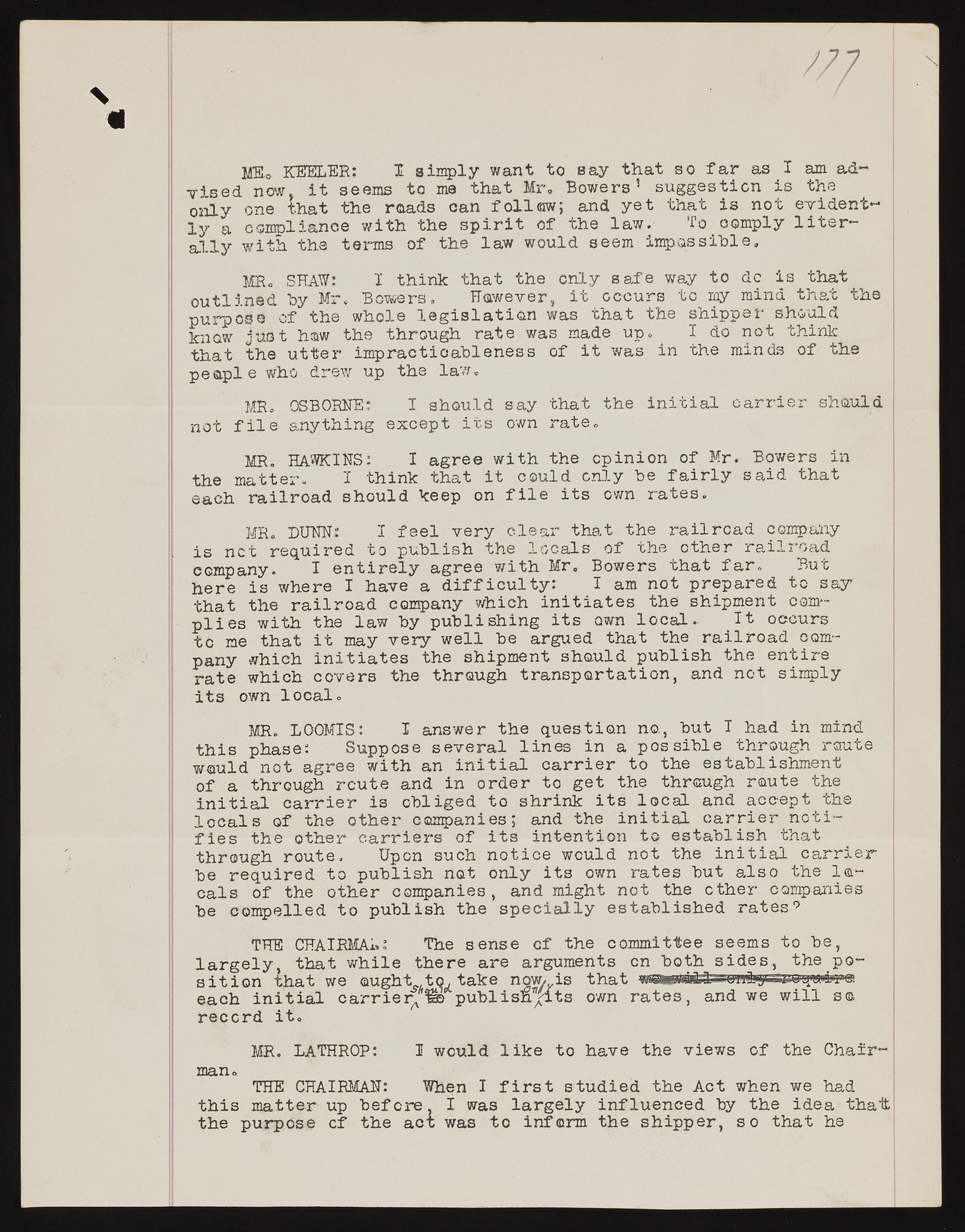Copyright & Fair-use Agreement
UNLV Special Collections provides copies of materials to facilitate private study, scholarship, or research. Material not in the public domain may be used according to fair use of copyrighted materials as defined by copyright law. Please cite us.
Please note that UNLV may not own the copyright to these materials and cannot provide permission to publish or distribute materials when UNLV is not the copyright holder. The user is solely responsible for determining the copyright status of materials and obtaining permission to use material from the copyright holder and for determining whether any permissions relating to any other rights are necessary for the intended use, and for obtaining all required permissions beyond that allowed by fair use.
Read more about our reproduction and use policy.
I agree.Information
Digital ID
Permalink
Details
Member of
More Info
Rights
Digital Provenance
Publisher
Transcription
/ / / ME.* KEELER: I simply want to say that so far as X am advised now, it seems to me that Mr. Bowers5 suggestion is the only one that the roads can follow; and yet that is not evidently a compliance with the spirit of the law.- To comply literally with the terms of the law would seem impossible, MR. SHAW: X think that the only safe way to dc is that outlined "by Mr, Bowers, However* it occurs to my mind that the purpose of the whole legislation was that the shipper should know just haw the through rate was made up. _ I do not think that the utter impractioableness of it was in the minds of the people who drew up the lav;. MR, OSBORNE: I should say that the initial carrier should not file anything except its own rate. MR. HAWKINS: I agree with the opinion of Mr. Bowers in the matter. $ think that it could only be fairly said that each railroad should keep on file its own rates. MR. DUNN: I feel very clear that the railroad company is net required to publish the locals of the ether railroad company. I entirely agree with Mr. Bowers that far.. But here is where I have a difficulty: I am not prepared to say that the railroad company which initiates the shipment complies with the law by publishing its own local. It occurs tc me that it may very well be argued that the railroad company which initiates the shipment should publish the entire rate which covers the through transportation, and not simply its own local. MR. LOOMIS: I answer the question no, but I had in mind this phase: Suppose several lines in a possible through route would not agree with an initial carrier to the establishment of a through route and in order to get the through route the initial carrier is obliged to shrink its local and accept the locals of the other companies; and the initial carrier notifies the other carriers of its intention to establish that through route. Upon such notice would not the initial carrier be required to publish not only its own rates but also the locals of the other companies, and might not the ether companies be compelled to publish the specially established rates9 THE CHAIRMAN: The sense cf the committee seems to be, largely, that while there are arguments cn both_ sides, the position that we aught to, take now, is that waaiiim*MLl"i u'lrhy.Tu.oq'wi'i. ai each initial carrier^!© publish1Jits own rates, and we will so record it. MR. LATHROP: 1 would like to have the views of the Chairman. THE CHAIRMAN: HVhen I first studied the Act when we had this matter up before, i was largely influenced by the idea that; the purpose cf the acx was to inform the shipper, so that he

